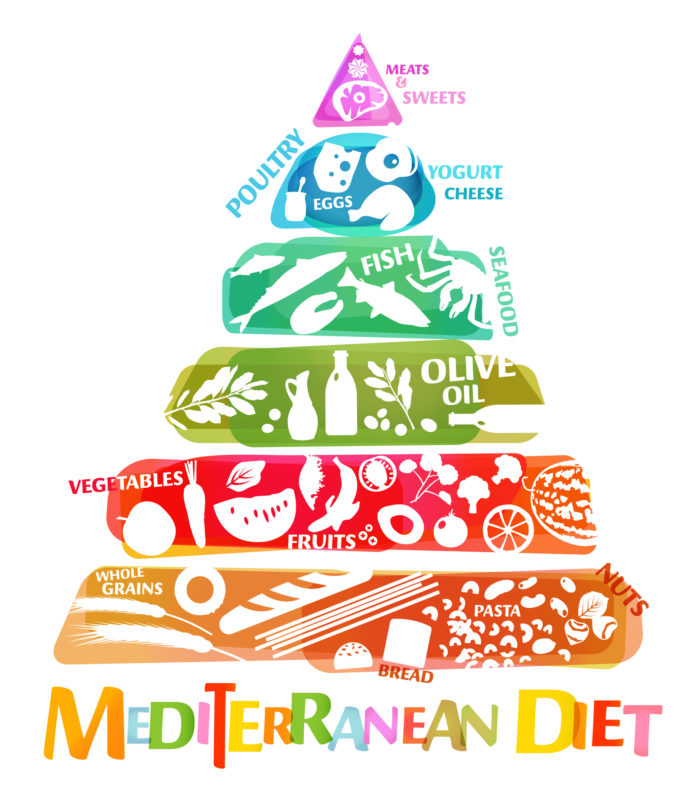A Q&A with Eric Zacharias, MD:
The Mediterranean Diet and Your Health
The Mediterranean diet is a way of eating inspired by the traditional cuisine of Greece, Southern Italy, and Spain in the 1940’s and 1950’s. As author of The Mediterranean Diet: A Clinician’s Guide, Dr. Eric Zacharias is a nationally recognized expert and has spoken on the topic to professional and general audiences throughout the United States.
What is the Mediterranean Diet?
Dr. Zacharias: There is a two part answer to this question. First, the diet emphasizes high intake of foods that have proven, favorable effects on the body. Second, the diet minimizes intake of foods that have proven, adverse effects on the body. A key concept is that our bodies are amazingly resilient machines that, when presented with a preponderance of healthful food, will fight off undesirable diseases and problems.
What are the basic guidelines around the Mediterranean Diet?
Dr. Zacharias: The Mediterranean Diet guidelines are pretty simple. High intake of these foods is recommended:
- Vegetables
- Nuts and Legumes
- Fruits
- Whole Grain Carbohydrates
- Plant Oils (such as olive and grape seed)
- Protein from Nuts and Nut Butters
- Beans
- Tofu
- Fish Sources
- Treat Yourself to Dark Chocolate Occasionally
- Moderate Daily Alcohol
Reduce Your Intake of:
- Meat (white meat such as poultry is okay)
- Dairy Products (fat-free dairy products such as skim milk are okay)
Avoid:
- Simple and Refined Sugars
- Processed Foods
- High Fructose Corn Syrup
- Trans Fats
- Large Amounts of Animal Fats Such as Most Red Meat (occasional and moderate amounts really aren’t the problem)
What are the health benefits of the Mediterranean Diet?
Dr. Zacharias: The following numbers are incredibly powerful. I am not aware of any medications that come even close to these levels of reduction for these diseases. This is consistent with the old adage “You are what you eat.”
| 1. | Prevent Alzheimer’s Dementia | up to 50% reduction. |
| 2. | Prevent Heart Disease and Stroke | up to 70% reduction. |
| 3. | Prevent Obesity and Help Weight Loss | up to 50% reduction. |
| 4. | Prevent Diabetes and Hypertension | up to 70% reduction. |
A Mediterranean-way of eating has also been proven to reduce obesity, prevent asthma and autoimmune disorders, and prevent pre-atherosclerotic changes in major arteries in children.
How do I, with my crazy busy American-way of life, eat a Mediterranean-style diet for my health?
Dr. Zacharias: Good question. Let’s try to take the best dietary information we have and formulate some simple ideas as a solid starting foundation. You can always obsess over achieving perfection later, but getting started with a “close-enough diet” is priority one.
- Breakfast
Whole grain cereals with added almonds, walnuts, raisins or other fruit, and skim or soy milk; Oatmeal with the same; Whole grain toast with added almond or peanut butter; Egg whites or egg substitute cooked in olive, grape seed, or canola oil; Whole –grain waffles or pancakes with fresh fruit; Smoothies of blended fruit, fat free yogurt/skim milk/soy milk, plus, if desired, almond or peanut butter—yummy! - Lunch
Whole grain bread or whole grain crackers with added almond or peanut butter (carry these with nut butter squeeze packs for quick lunch anywhere, that’s what I do for 50% of my lunches); Whole grain bread with lean turkey and sides of carrots, apples, oranges, raisins, or other fruits and veggies; most all vegetarian dishes or dishes with fish or skinless - Snacks
Sliced apples, carrots, with almond or peanut butter; Fresh or dried fruit, Smoothies (see breakfast), Nut butter packs. - Dinner
Whether you are eating at home or dining out, look at the list of things to avoid and keep your brain on full-power mode when making dinner choices. You can easily substitute or add healthful foods from the “High Intake” food list to any recipe or dinner item.
Final Points
Healthful eating provides short- and long-term health benefits, tastes fantastic, and can be incorporated into your busy life. Please think of eating for your health as a long-term strategy that includes optimizing your exposure to healthful nutrients and minimizing your intake to harmful foods. It’s also important to stay positive about your efforts —don’t quit because you have a bad meal or food item every now and then. Just get back on track, try to eat better, and keep doing the best you can.
Peace and healthful tidings, Dr. Eric Zacharias
About Eric Zacharias, MD
Dr. Eric Zacharias is board certified in Internal Medicine, the medical specialty dedicated to preventing, diagnosing, and treating adult diseases. In addition to his clinical practice, Dr. Zacharias works as an academic physician, teaching ongoing courses to medical students, residents, and practicing physicians.
Learn more about Internal Medicine at Boulder Medical Center



